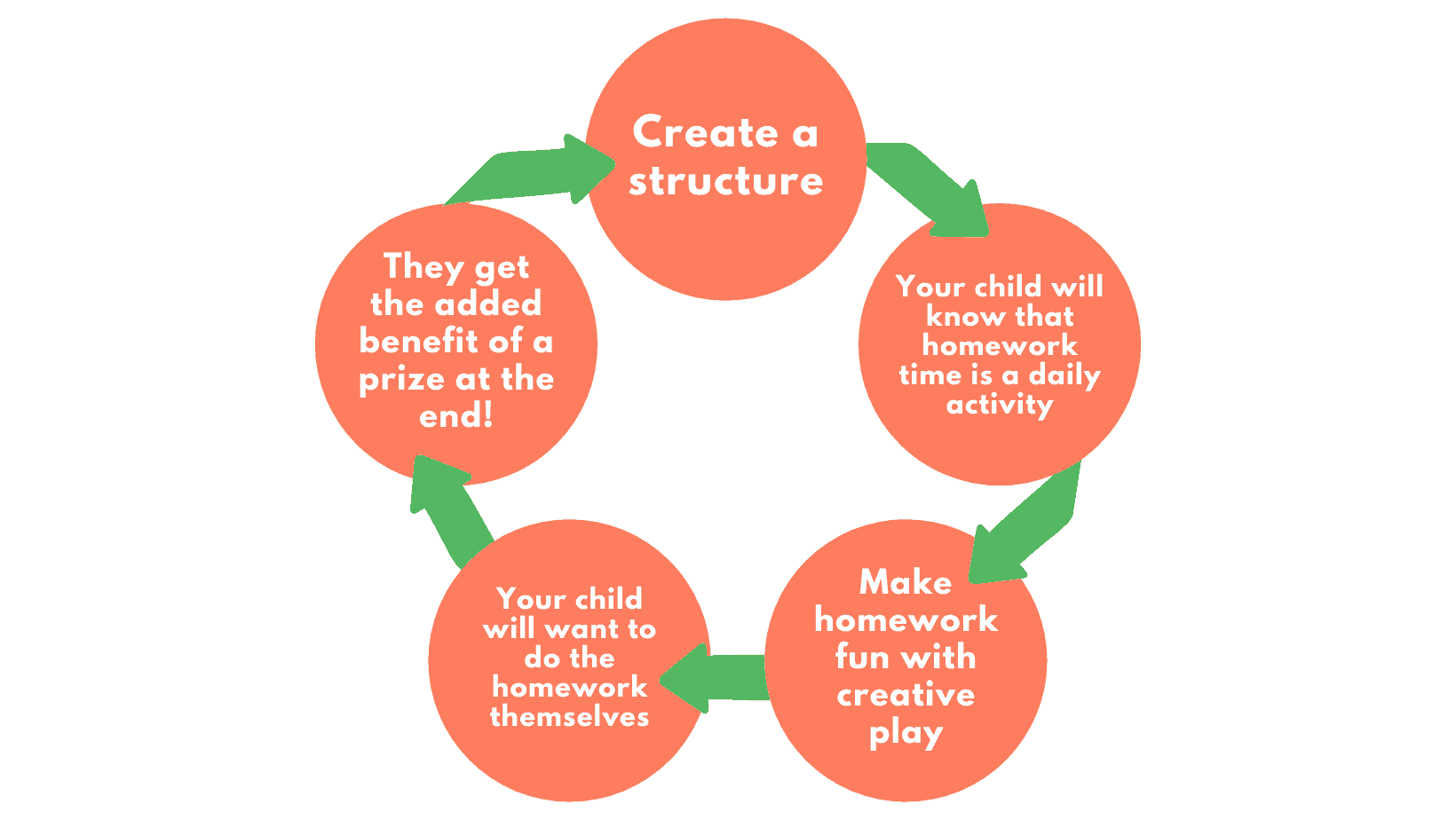Ahh the dreaded Monday afternoon has rolled around again, when your child brings homework for completion. There’s probably spelling, maths, home readers… how will you possibly encourage them with some motivation to do their homework?
Today, we are going to go through 3 key tips that can help you keep your child on track and motivated to do homework. It may be challenging, but sticking it out will create easier afternoons for you and optimised learning for your child!
So, let’s get started!
When to Give Your Child a Rest
Tips for Homework Motivation
Tip #1: Create a Structure for Homework
Tip #2: Make Homework Fun
Tip #3: Create a Reward System
How do you bring all these tips together?
When to Give Your Child a Rest
Before we get into the tips, it’s important to talk about what to do if your child is really struggling with completing work. Most students lack motivation to do homework, and this is entirely normal.
However, if your child is having unmanageable stress or outbursts over what they are required to do, it may be an indication that the work is too much right now.
As we know, life isn’t just school and free-time. Many students get to school early, have sports or activities after, and have chores to complete. Adding homework on top can simply be too much at times.
It is okay to opt out of all, or part, of your child’s homework for a week if it seems like too much. If it’s not reinforcing what they learn at school whilst allowing them to have crucial free time, speak to their teacher and see if you can strike a balance.
By talking to the teacher, you will likely find out their own take on homework (which may be more in line with yours than you thought) and come up with a plan that works best for your child. We want kids to have responsibility and a good work ethic, but time to play is also essential.
Tips for Homework Motivation
Now that we have discussed the purpose of homework and when to opt out, it’s time to get some tips for motivating your child! These methods can be used when your child isn’t overwhelmed and needs to do the work, but could benefit from your encouragement.
It’s also important that if we use extrinsic motivators (e.g. a new homework chart, where your child gets a toy each month), that they are paired with intrinsic motivators (e.g. explaining to your child how homework will broaden their knowledge), so they develop good work skills.
If you are relying simply on rewards, your child is unlikely to be motivated when the reward is taken away.
Tip #1: Create a Structure for Homework
This is probably the most important tip! Just like us adults, children really thrive off structure when they are learning and working. Creating one for homework does two positive things.
First, homework becomes ingrained in the afternoon schedule. There isn’t an argument about how or when your child ought to get it done.
They aren’t going to have as much scope to negotiate out of tasks they don’t want to do. This will likely make the process of getting homework done quicker, far less stressful for you and more rewarding for your kids.
The second thing a structure does is allow homework to be broken down and more easily completed across different days. This way, you can have a designated day to focus on maths, and one for spelling.
Another good way to do it is by breaking each task into bite-size chunks across 3-4 days (after all, what kid wants to do 4 pages of maths in one go?).
There are a few things to consider for a good homework schedule:
- Have a designated place for work — the kitchen table will usually do the trick.
- Create set times for work — for young children, it’s usually better if timeframes are task-based rather than determined by the clock (e.g. homework starts from after a snack until shower time, rather than from 4pm-5pm). You can create a visual schedule to help with this.
- Keep it simple! If the schedule is tangible and easy to follow, your child is more likely to stick to it.
Tip #2: Make Homework Fun!
It’s time to stop talking about homework as if it’s a job, or a task that needs to be completed. Instead, frame it to your child as an interesting thing that they get to do. It will broaden their knowledge, take them to new places and cement what they have learnt at school.
This mindset shift is all well and good, but how do we actually make homework enjoyable? The simplest way to do this is by combining work with play.
There are a few ways you can do this:
- Make it creative: If your child is learning about a particular subject in maths you could create an art illustration to help them understand the topic. For spelling, perhaps you will let them sculpt letters or create words out of found objects around the backyard. This is not only fun, but tactile, so your child is more likely to remember it.
- Do homework as a group: For extroverted or group oriented children, doing work with siblings and close friends can be a great natural motivator! Just make sure you’re on hand to supply the cookies and keep things focussed.
- Work with the senses: As we have already spoken about, sensory play is not only fun, but more likely to create lasting memories. By incorporating things like playdough, kinaesthetic sand on music into your child’s homework, it will be a more enjoyable experience.
Looking to add some variety to your child’s homework in the afternoons? Try using new resources! We’ve got FREE, Downloadable Reading Comprehension Worksheets for Year 1 Students here!
Tip #3: Create a Reward System
Rewards can be a good, short-term way to get homework done. However, we have already touched on why rewards sometimes do not work. They need to be supplemented with something else for long-term success, so your child feels motivated on their own to do work.
A great idea is implementing a reward system alongside another one of the tips we have shared! You may also like to combine the reward system with other tasks around the house. This way, if students miss a week of homework, they do not feel bad or like they’ve missed out on the chance of getting a prize.
A great way to do this is by creating a sticker chart that tracks multiple behaviours at once. Once the chart is filled, you may offer a prize! Perhaps a new book, toy, or a trip to the movies.
When you are creating reward systems for your child, make sure that you are letting your child take initiative for their work. Nagging or making homework a chore isn’t going to get to the job done. It should be a positive experience, with the added bonus of a prize at the end.
How do you bring all these tips together?
The tips we have just offered may seem conflicting. They’re not meant to be! Instead, they are varied ways to meet the needs and motivators of different children.
These tips for homework motivation can be used alone, but will likely be strongest when used together. Here’s a suggestion:
We hope that with these tips, you and your child will work together to achieve homework ease! It’s all trial and error. Try some different things and see what works.
Looking for some tips to navigate home learning for your child? Head here!
Looking for some extra help for your child with homework motivation?
We have an incredible team of tutors and mentors!
We offer tutoring and mentoring for students in Years K-12 in a variety of subjects, with personalised lessons conducted one-on-one in your home or at our state of the art campus in Hornsby or the Hills!
We’ve supported over 8,000 students over the last 11 years, and on average our students score mark improvements of over 20%!
To find out more and get started with an inspirational tutor and mentor, get in touch today or give us a ring on 1300 267 888!
Lucinda Garbutt-Young hopes to one day be writing for a big-shot newspaper… or maybe just for a friendly magazine in the arts sector. Right now, she is enjoying studying a Bachelor of Public Communication (Public Relations and Journalism) at UTS while she writes on the side. She also loves making coffees for people in her job as a barista, and loves nothing more than a sun shower.





